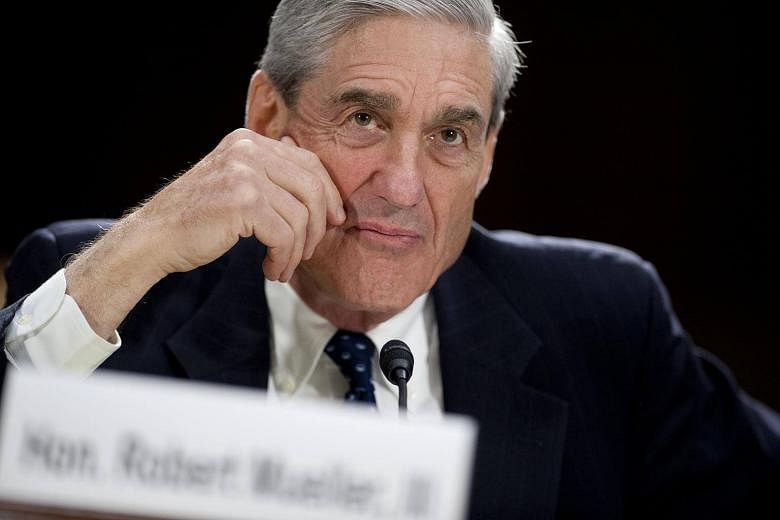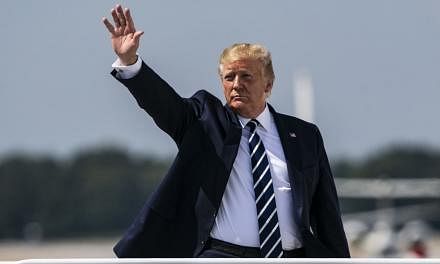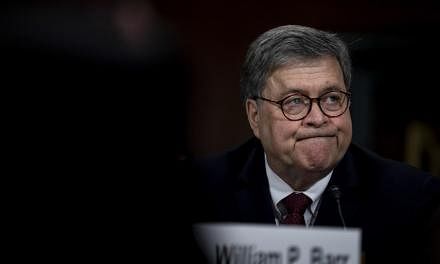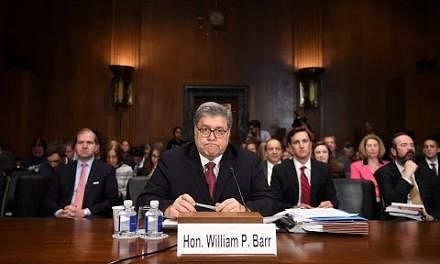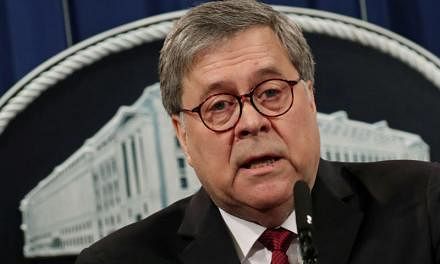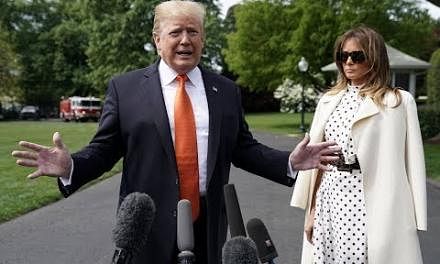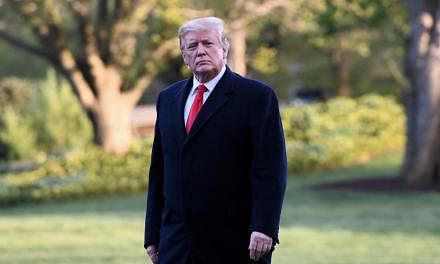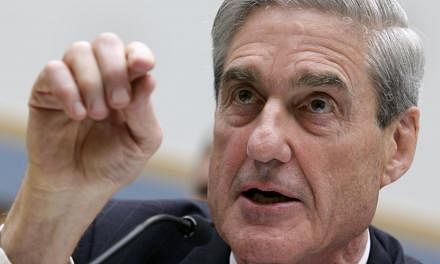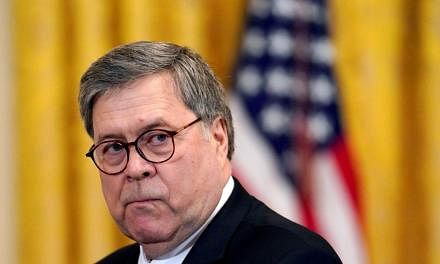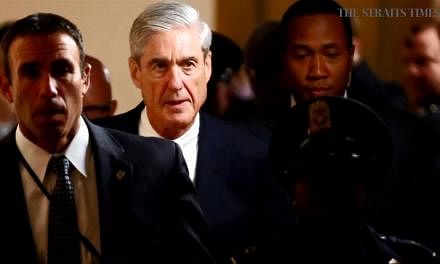WASHINGTON (NYTIMES) - Standing before reporters in February, President Donald Trump said unequivocally that he knew of nobody from his campaign who was in contact with Russians during the election. Attorney General Jeff Sessions has told the Senate the same thing.
Court documents unsealed this week cast doubt on both statements and raised the possibility that Sessions could be called back to Congress for further questioning.
The special counsel, Robert Mueller, unsealed his first charges Monday (Oct 30) in a wide-ranging investigation into Russian attempts to disrupt the presidential election and whether anyone close to Trump was involved. Records in that case show that George Papadopoulos, a foreign policy adviser, had frequent discussions with Russians in 2016 and trumpeted his connections in front of Trump and Sessions.
For months, journalists have revealed evidence that associates of Trump met with Russians during the campaign and the presidential transition. But the court documents represent the first concrete evidence that Trump was personally told about ties between a campaign adviser and Russian officials.
At a March 31, 2016, meeting between Trump and his foreign policy team, Papadopoulos introduced himself and said "that he had connections that could help arrange a meeting between then-candidate Trump and President Putin," according to court records.
"He went into the pitch right away," said J.D. Gordon, a campaign adviser who attended the meeting. "He said he had a friend in London, the Russian ambassador, who could help set up a meeting with Putin." Trump listened with interest. Sessions vehemently opposed the idea, Gordon recalled. "And he said that no one should talk about it because it might leak," he said.
Several of Trump's campaign advisers attended the March 2016 meeting, and at least two of those advisers are now in the White House: Hope Hicks, the communications director, and Stephen Miller, a senior policy adviser.
After Trump was sworn in, he could not escape questions about Russia. At a Feb 16, 2017, White House news conference, a reporter asked Trump, "Can you say whether you are aware that anyone who advised your campaign had contacts with Russia during the course of the election?" "No," Trump said. "Nobody that I know of. Nobody." The White House has sought to portray Papadopoulos as an insignificant figure in the campaign.
Ty Cobb, the White House lawyer dealing with matters related to Mueller's investigation, said the White House stood behind the president's comments.
"The media's willingness to inflate Papadopoulos, a young unpaid volunteer and supposed energy expert, into an important thought leader in the campaign or Russian operative is ludicrous," Cobb said. "The evidence so far suggests he attended one meeting, said something about Russia and was immediately shut down by everyone in the room. It's very important to remember that he is not a criminal now because of anything he did for the campaign - he is a criminal because he initially lied to the FBI." A Justice Department spokesman declined to comment.
Democrats in the Senate said on Thursday that they would push to have Sessions return to the Judiciary Committee for further questioning.
"He now needs to come back before the committee, in person, under oath, to explain why he cannot seem to provide truthful, complete answers to these important and relevant questions," said Senator Patrick Leahy, who is on the Judiciary Committee.
Senator Richard Blumenthal of Connecticut, another Democrat on the committee, pointed out that Sessions' testimony was under oath and "wasn't just some random comment he made in passing on the street". Sessions faced similar questions in January before the Senate Judiciary Committee, when Senator Al Franken, asked him about contacts between the campaign and Russia. "I'm not aware of any of those activities," Sessions said. He denied having any such contacts himself.
The court documents in the Papadopoulos case represent the most explicit evidence yet that Trump's campaign was eager to coordinate with Russian officials to undermine his rival, Hillary Clinton. Federal investigators suspected that Russian intelligence services used intermediaries to contact Papadopoulos to gain influence with the campaign, offering "dirt" on Clinton in the form of "thousands of emails." Papadopoulos pleaded guilty to lying about those contacts and is cooperating with the FBI.
On Thursday, as news of Papadopoulos' Russian ties continued to ripple through Washington, Franken sent a stern letter to Sessions. "This is another example in an alarming pattern in which you, the nation's top law enforcement official, apparently failed to tell the truth, under oath," he wrote.
The case against Papadopoulos was unsealed at the same time as an unrelated indictment against two other former campaign advisers, Paul J. Manafort and Rick Gates. Taken together, the three charges sent a foreboding message to a fourth adviser to Trump's campaign, Michael Flynn.
White House officials and others in the case are bracing for charges against Flynn, a retired three-star general who had a short and tumultuous tenure as national security adviser. Mueller is investigating Flynn for not disclosing his Russian contacts or his foreign lobbying work.
Manafort was indicted on seldom-used charges of concealing foreign lobbying, as well as for lying on federal documents - the same activities for which Flynn is being investigated.
Charging people for not disclosing their foreign lobbying is extremely rare, a point that Manafort's lawyers made in documents filed in court on Thursday. Since 1966, his lawyers wrote, only six such cases have been filed and only one person has been convicted. Such violations are typically handled administratively.
"It is far from clear what activity triggers a requirement to file a report as a foreign agent," said Kevin Downing, Manafort's lawyer.
Manafort and Gates appeared in court briefly on Thursday. Lawyers discussed the conditions of their house arrest and the possibility of a trial in April.
